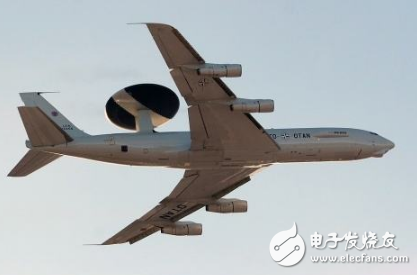The sky offers a much larger space compared to the ground. In recent years, with technological advancements and improved living standards, the quality of travel has gradually declined. The rise in vehicle usage has led to increased exhaust emissions and severe traffic congestion, seriously impacting people's quality of life. Traffic jams have now become one of the most pressing challenges, prompting the idea of shifting transportation to the skies.
According to reports, Airbus has started developing drones. Paul Eremenko, Airbus’s Chief Technology Officer, mentioned that if this new technology is realized, only one pilot may be needed on board, and fully autonomous flying could become a reality in the future.

Eremenko also noted that implementing unmanned passenger aircraft technology could significantly reduce operational costs for airlines. With full automation, pilot training expenses can be cut, more efficient flight paths can be chosen, and fuel consumption can be minimized.
A previous study by UBS suggested that unmanned aircraft could be introduced before 2025, potentially saving airlines around $35 billion annually. This amount is nearly equivalent to the annual revenue of a major airline. For instance, in 2016, United Airlines, the second-largest airline in the U.S., reported revenues of $36.5 billion and a profit of $5.4 billion.
Additionally, Boeing expects the aviation industry to need 637,000 pilots over the next two decades, but currently, there are only about 200,000 pilots available. If drones are implemented, this pilot shortage issue could be effectively addressed.
However, Airbus hasn’t provided detailed information about its drone projects. Meanwhile, its competitor Boeing has recently invested in and acquired two companies working on automatic flight technology.
At the Paris Air Show in June, Boeing announced it would explore the possibility of applying fully automated driving technology to commercial flights. Beyond drones, Boeing is also researching autonomous systems for small drones and even self-driving submarines. It plans to test unmanned jets as early as 2018.
Airbus, on the other hand, is focusing more on airborne cars. Last week, it opened its second innovation center in Shenzhen, aiming to collaborate with local partners on flying cars, new energy solutions, and urban air mobility. Eremenko explained that one reason for choosing Shenzhen was the growing potential in China’s aviation sector and the rapid progress in urban air traffic development. He also hinted at possible partnerships with companies like Baidu and others involved in autonomous driving.
Airbus’s first innovation center was established in Silicon Valley in 2015, focusing on future air travel concepts. Last year, the company announced plans to develop and launch Vahana, an autonomous flight transportation platform, offering drone transport systems and online flight taxi services. It is expected that Vahana’s flying car will undergo its first test at the end of this year.
In January of this year, Airbus set up a division focused on urban air traffic and unmanned flying cars. Two months ago, it partnered with Shenzhen HAX, a hardware startup accelerator, to explore urban air mobility. Although the collaboration details remain unclear, the partnership signals a strong interest in shaping the future of aerial transportation.
Consumer Electronics
DongGuan BoFan Technology Co.,Ltd. , https://www.ufriendcc.com
